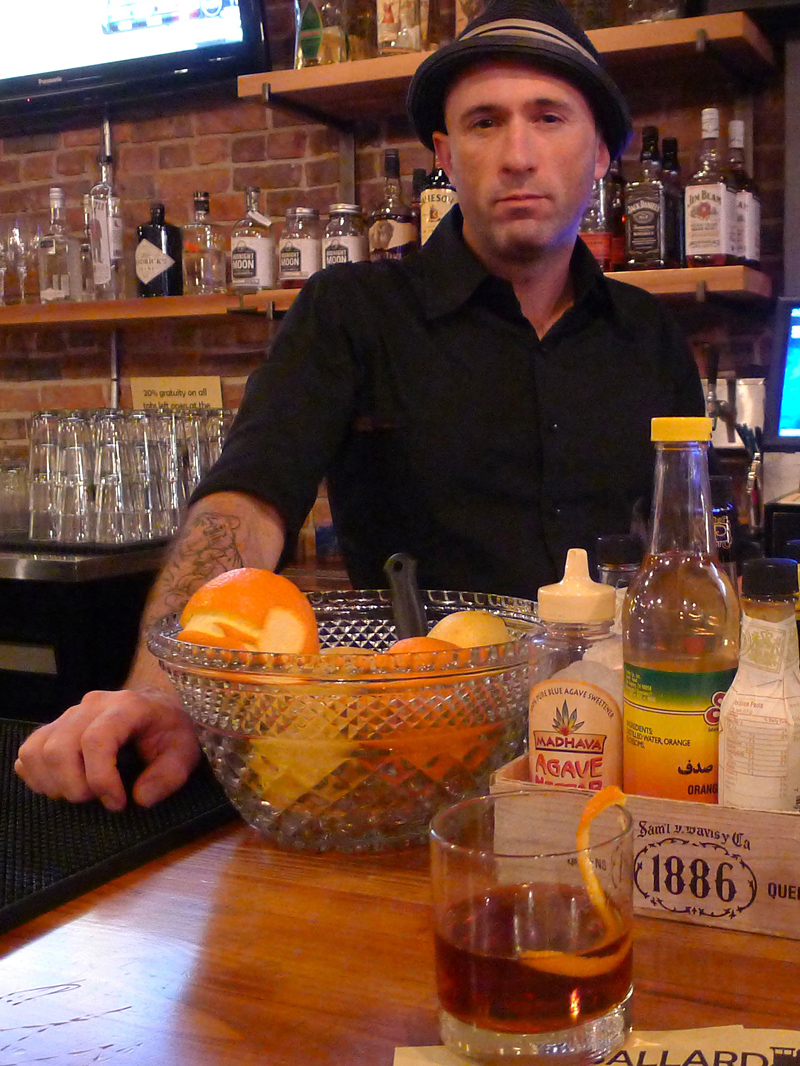Few things are more unnerving than the sight of red and blue lights flashing in the rear-view mirror, particularly for a paranoid pot smoker. Here are a few pro-tips to survive such a situation.Our feature story this week deals with the issue of marijuana DUIs, and the proposal that would set a THC blood limit that is “roughly analogous” to the .08 blood alcohol content standard for alcohol. To get a sense of how the proposed 5-nanogram per milliliter of blood might impact the number of DUI arrests and prosecutions, I spent the past four weeks interviewing attorneys, expert witnesses, prosecutors, and state troopers, including the commander of the state toxicology lab, learning what makes or breaks “drugged driving” cases in court. If you only smoke pot every so often, waiting three or four hours after your last hit will likely keep you below five nanograms of THC — the amount that may or may not equate to a .08 BAC — by the time you get behind the wheel. Medical users and everyday stoners probably have at least a few nanograms in their blood at any given time, and will have higher levels longer than novice smokers.But under the current state law, there is no limit to the amount of THC a driver can have in his or her blood. Having 50-plus nanograms — the amount present a few moments after inhalation — would probably be enough to sway a jury that the motorist was stoned, but the presence of active THC alone is not proof enough to convict. The state still has to prove impairment. And that’s where things get a little hazy. Here are five ways to help tip the scales of justice in your favor.1. Do Not Drive HighStep one is the easiest step. You might think a bowl or three puts you in the zone like you’re playing a racing game on X-Box, but the reality is your reflexes aren’t quite as sharp. (That said, the U.S. Department of Transportation once said that some drivers improve after toking.) Wait at least an hour if possible before driving. Drink a glass of water and relax for a minute. And don’t mix weed and booze, ’cause that makes the effects of both stronger. It also tends to make you forget these next four steps.2. Do Not Incriminate YourselfThe moment you roll down your window, the officer who pulled you over is looking for the telltale signs of impairment. Do you know how fast you were going? Your eyes look a little bloodshot, how are you feeling today? Have you been smoking marijuana? These are all queries that could lead to your arrest.”In overall scheme of things, the only purpose of those questions is to find probable cause and arrest you in the near future,” says George Bianchi, a former King County Prosecutor and current defense attorney specializing in DUI cases. “Your true legal obligations to law enforcement are to identify yourself by your drivers license, provide your proof of insurance and registration to the vehicle. By law, your really not obligated to do anything else.”3. Do Not Take a Field Sobriety TestYou are not obligated to take a field sobriety test. In fact, tests are failure waiting to happen, especially if the officer has already caught of whiff of pot, or you forgot to follow step two. (So many steps!) “Officers are usually very careful to say I’d like you to step out of car and take a voluntary field sobriety test,” says Aaron Pelley, a Seattle criminal defense attorney with a wealth of experience in marijuana cases. “And with the wind blowing and lights flashing, and cars flying by on the road, it’s easy to say ‘Oh he couldn’t hold one leg up and clap his hands and balance a ball on his nose,’ or whatever tests they use to prove intoxication.”Like they say in The Wire, “You cannot lose if you do not play.” 4. Do Not Refuse a Blood DrawAlright, you followed steps one through three, but the officer spotted the six-foot bong in the back seat. Busted, back of the squad car, shit just got real. You’re headed to the hospital for a blood draw.Under current state law, if the officer finds probable cause, refusing a blood draw carries a stiff penalty. The formula is simple: refusal + conviction = get used to taking the bus. It’s an enhanced sentence that results in a two-year loss of license. If you submit to the test and are later found guilty, it’s only a 90 day loss of license. (Important note: the rules are even more strict with alcohol.) There are, however, circumstances where refusing the blood draw might be your best option. Before deciding, consult an attorney. “We need to be there and know, why they were they pulled over, what their criminal history is, was anybody hurt, or was there an accident,” Pelley says. “Almost invariably somebody is on call at the public defender’s office to answer questions before agreeing to a blood draw.”Keep in mind, however, that the current law places the burden of proof on the prosecution, regardless of the number nanograms in your system. The state toxicology lab can’t guarantee accuracy below on nanogram of THC per milliliter, and, unlike alcohol, they can’t calculate the amount of active THC back to the time of driving. There are other variables, victory is not guaranteed, but you have a fighting chance. 5. Be Polite to the OfficerThe most challenging of the five steps is the final one. Don’t say too much, but be cordial. It’s a delicate balance. Don’t get defensive, and don’t be a dick — those should be your two guiding principles.”You will never win an argument with police on the side of the road,” Bianchi says. “That’s why you always need to politely decline as opposed to telling them to go fuck themselves. You do the fighting later on. People will actually brag to police I’ll hire an attorney and kick your ass in court.’ Why say that? Just go about your business and argue it later.”So take a deep breath, ask the officer how his or her day has been, and try not to look so damn high. The cops expect you to be anxious, even if you’re not breaking the law.”I always like to tell people, we’re not the only police for impairment, we’re the nervous police,” says Sgt. Mark Crandall, the Drug Recognition Expert program coordinator for the State Patrol. “People are super nervous when they get stopped. We get that. It’s nerve-wracking to have blue lights flashing behind you when you get pulled over.”Be friendly and cooperate without violating steps one through three, and with a little luck you’ll be right back on the road, exhaling a thick cloud of … relief.Follow The Daily Weekly on Facebook and Twitter.
More Stories From This Author
Adam Smith and Kim Schrier will retain Congress seats | Election 2024
Smith represents the 9th Congressional District and Schrier represents the 8th Congressional District.
November 5, 2024 9:40 pm
Boeing Machinists approve contract, ending 52-day strike
After voting no twice, 59% of union members approved the latest contract.
By
Michael Henneke • November 5, 2024 8:40 am
Charges filed against teens in King County crime spree
Suspects linked to 78 robberies, shootings and carjackings in Sept. and Oct.
By
Benjamin Leung • October 21, 2024 6:00 pm






